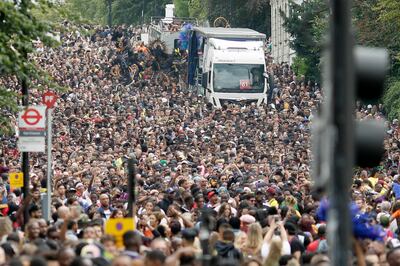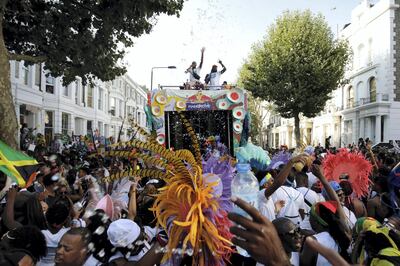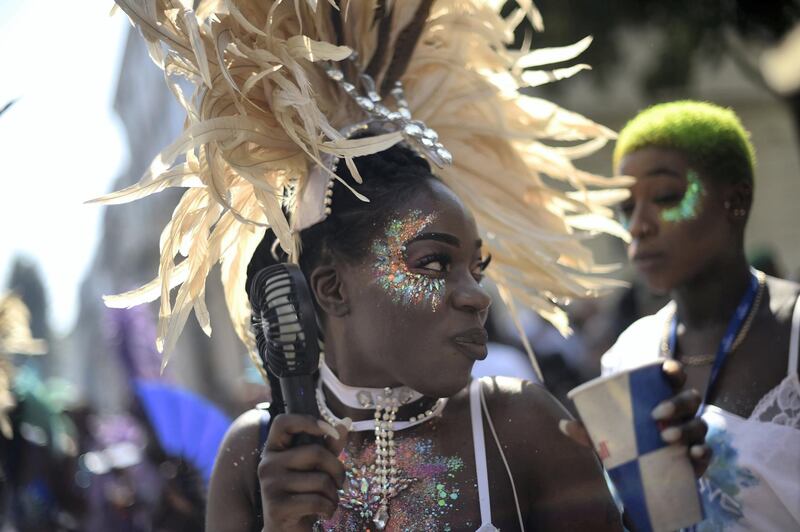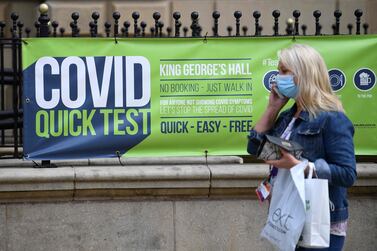London's Notting Hill Carnival, one of Europe's largest street festivals, has been cancelled by Covid for a second year.
The festival – in which tens of thousands of spectators usually line the streets watching dancers, bands and floats – is going online.
Health and finance concerns combined to prevent organisers from "putting on a safe and spectacular carnival" in August, said Matthew Phillip, the carnival's chief executive.
The move online comes after the final stage in the easing of England's lockdown restrictions was delayed amid rising cases of the highly contagious Delta variant of Covid-19.
"The bands and sound systems and the grassroots people that actually put on the spectacle that we know and love every year have been very much struggling. It's been difficult for them to prepare," Mr Phillip said.
"The decision was made because we're committed to putting on a safe and spectacular carnival. And a combination of risk to people's health and the inability for us to be able to put it on in the way that it normally is, is what led to the decision," he said.
Notting Hill Carnival is a product of the massive influx of black immigrants who came to Britain to help rebuild the country after the Second World War.
The celebration of Afro-Caribbean culture normally attracts crowds of around two million over the August bank holiday, to a parade of costumed dancers, steel drum bands and smoky barbecue pits serving jerk chicken and plantains.

“I’m very sad to hear that it’s been cancelled for the local community, both West Indian and everyone else. That’s a real shame. So much joy is derived from the two days of music, dancing and culture,” said Rima Sams, who runs St John’s Cafe in Notting Hill.
Another local, Talibah Stevenson, believes the carnival should go on.
"I understand it's a difficult situation. At the same time there are protests every weekend that go on," she said.
"Notting Hill Carnival is a tricky one. It's a big area so people would be dispersed as they are every year."

"Everyone involved in the event desperately wants a return to the road where carnival belongs but safety has to come first and with the latest cautious announcement on the government's road map, this is the only way to ensure that," the board of Notting Hill Carnival said in a statement.
Last year's first online event was hosted by radio presenters DJ Ace and Remel London.
Efforts are now turning to 2022 and raising money to support the carnival's bands and sound system providers, Mr Phillip said.
“I think to come back in 2022, we’re going to need a big investment to support them so we can come back and be the spectacle that people know and love,” he said.
The first ever Notting Hill Carnival took place in 1966. It usually takes place at the end of August, over the long bank holiday weekend that traditionally marks the end of Britain’s summer holiday season.








